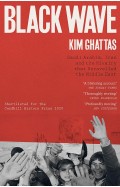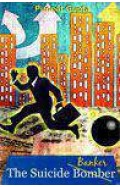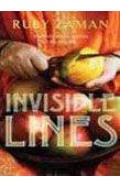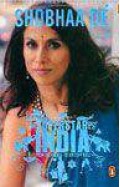THE LOST HOMESTEAD: My Family, Partition and the Punjab
By: Marina Wheeler
-
Rs 1,207.25
- Rs 2,195.00
- 45%
You save Rs 987.75.
Due to constant currency fluctuation, prices are subject to change with or without notice.
On 3 June 1947, as British India descended into chaos, its division into two states was announced. For months the violence and civil unrest escalated. With millions of others, Marina Wheeler's mother Dip Singh and her Sikh family were forced to flee their home in the Punjab, never to return.
As an Anglo-Indian with roots in what is now Pakistan, Marina Wheeler weave's her mother's story of loss and new beginnings, personal and political freedom into the broader, still highly contested, history of the region. We follow Dip when she marries Marina's English father and leaves India for good, to Berlin, then a divided city, and to Washington DC where the fight for civil rights embraced the ideals of Mahatma Gandhi.
The Lost Homestead touches on global themes that strongly resonate today: political change, religious extremism, migration, minorities, nationhood, identity and belonging. But above all it is about coming to terms with the past, and about the stories we choose to tell about ourselves.
On 3 June 1947, as British India descended into chaos, its division into two states was announced. For months the violence and civil unrest escalated. With millions of others, Marina Wheeler's mother Dip Singh and her Sikh family were forced to flee their home in the Punjab, never to return.
As an Anglo-Indian with roots in what is now Pakistan, Marina Wheeler weave's her mother's story of loss and new beginnings, personal and political freedom into the broader, still highly contested, history of the region. We follow Dip when she marries Marina's English father and leaves India for good, to Berlin, then a divided city, and to Washington DC where the fight for civil rights embraced the ideals of Mahatma Gandhi.
The Lost Homestead touches on global themes that strongly resonate today: political change, religious extremism, migration, minorities, nationhood, identity and belonging. But above all it is about coming to terms with the past, and about the stories we choose to tell about ourselves.
THE LOST HOMESTEAD: My Family, Partition and the Punjab
By: Marina Wheeler
Rs 1,207.25 Rs 2,195.00 Ex Tax :Rs 1,207.25
Zubin Mehta: A Musical Journey (An Authorized Biography)
By: VOID - Bakhtiar K. Dadabhoy
Rs 472.50 Rs 1,050.00 Ex Tax :Rs 472.50
India in the Persianate Age: 1000-1765
By: Richard M. Eaton
Rs 3,415.50 Rs 3,795.00 Ex Tax :Rs 3,415.50
Black Wave - Saudi Arabia, Iran, and the Forty-Year Rivalry That Unraveled Culture, Religion, and Collective Memory in the Middle East
By: Kim Ghattas
Rs 2,785.50 Rs 3,095.00 Ex Tax :Rs 2,785.50
Manning Up: How the Rise of Women Has Turned Men into Boys
By: Kay Hymowitz
Rs 646.75 Rs 995.00 Ex Tax :Rs 646.75
India in the Persianate Age: 1000-1765
By: Richard M. Eaton
Rs 3,415.50 Rs 3,795.00 Ex Tax :Rs 3,415.50
Black Wave - Saudi Arabia, Iran, and the Forty-Year Rivalry That Unraveled Culture, Religion, and Collective Memory in the Middle East
By: Kim Ghattas
Rs 2,785.50 Rs 3,095.00 Ex Tax :Rs 2,785.50
No recently viewed books available at the moment.
Zubin Mehta: A Musical Journey (An Authorized Biography)
By: VOID - Bakhtiar K. Dadabhoy
Rs 472.50 Rs 1,050.00 Ex Tax :Rs 472.50
THE LOST HOMESTEAD: My Family, Partition and the Punjab
By: Marina Wheeler
Rs 1,207.25 Rs 2,195.00 Ex Tax :Rs 1,207.25
India in the Persianate Age: 1000-1765
By: Richard M. Eaton
Rs 3,415.50 Rs 3,795.00 Ex Tax :Rs 3,415.50
Black Wave - Saudi Arabia, Iran, and the Forty-Year Rivalry That Unraveled Culture, Religion, and Collective Memory in the Middle East
By: Kim Ghattas
Rs 2,785.50 Rs 3,095.00 Ex Tax :Rs 2,785.50












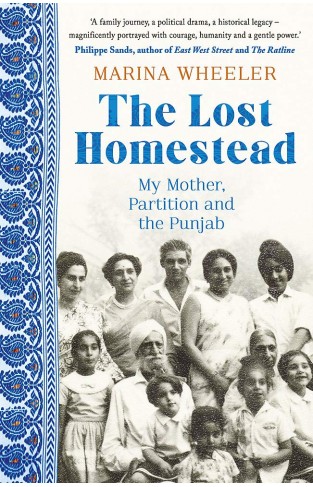
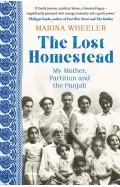
-120x187.jpg?q6)





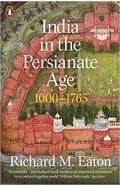

-120x187.jpg?q6)

